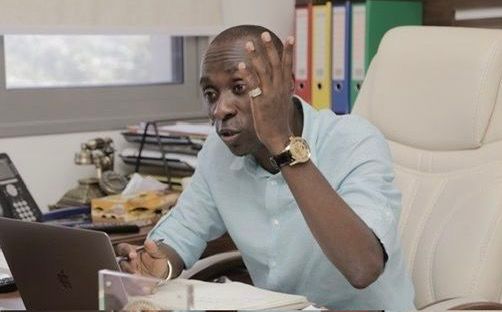Ernest Owusu Bempah, a Deputy National Communications Director for the New Patriotic Party (NPP), has thrown his weight behind Kennedy Agyapong, an NPP flagbearer hopeful, portraying him as the resolute leader Ghana needs to combat the pervasive issue of illegal mining, commonly known as galamsey. Bempah argues that Agyapong possesses the necessary fortitude and unwavering resolve to confront anyone implicated in this destructive practice, irrespective of their political affiliations or familial ties. This endorsement comes amidst a renewed national focus on galamsey and its devastating impact on Ghana’s environment and water resources.
Bempah emphasizes Agyapong’s purported zero-tolerance approach to galamsey, suggesting that under his leadership, no government appointee would dare engage in the illicit activity. He paints a picture of a swift and decisive response to any such transgression, envisioning immediate dismissal and prosecution for any official found culpable, including himself. This, according to Bempah, exemplifies the qualities of a strong leader – one who prioritizes action over rhetoric and enforces accountability without favoritism. He believes Ghanaians yearn for a leader who not only speaks against corruption but also demonstrates the will to act decisively against it, even within their own ranks.
However, Bempah’s endorsement of Agyapong is coupled with a critique of his own party’s record on galamsey. He accuses the NPP of belatedly amplifying their voice against illegal mining, despite their own struggles to curb the practice during their time in power. This apparent contradiction, he suggests, stems from the alleged involvement of some appointees within the previous Nana Addo Dankwa Akufo-Addo administration, which allegedly hampered the former president’s efforts to eradicate the menace. This internal conflict within the NPP highlights the complexities of addressing galamsey, which often involves navigating vested interests and overcoming internal resistance.
Bempah further questions the credibility of NPP members who are now critical of the John Mahama-led government’s handling of galamsey. He implies a degree of hypocrisy, suggesting that the NPP’s own shortcomings during their tenure weaken their position to criticize the current administration. This internal debate within the NPP reflects the broader political dynamics surrounding galamsey, with accusations and counter-accusations flying between the major parties. It underscores the challenge of achieving a unified and effective approach to tackling this national crisis.
Bempah’s statements highlight a growing sentiment within Ghana – a desire for decisive leadership capable of effectively addressing the complex challenge of galamsey. His endorsement of Agyapong frames the flagbearer hopeful as a potential solution, emphasizing his perceived strength and unwavering resolve. However, his simultaneous critique of the NPP’s own record on galamsey introduces a layer of complexity, revealing internal divisions and raising questions about the party’s commitment to tackling the issue.
Ultimately, Bempah’s comments contribute to the ongoing national conversation surrounding galamsey, emphasizing the need for accountability, decisive action, and a unified approach. His endorsement of Agyapong, coupled with his criticism of the NPP, reflects the complex political landscape and the challenges of effectively combating illegal mining in Ghana. It remains to be seen whether Agyapong’s purported tough stance will resonate with voters and translate into tangible action if he were to assume the presidency. The fight against galamsey continues, with the nation watching closely to see who will emerge as a true champion for environmental protection and sustainable resource management.














